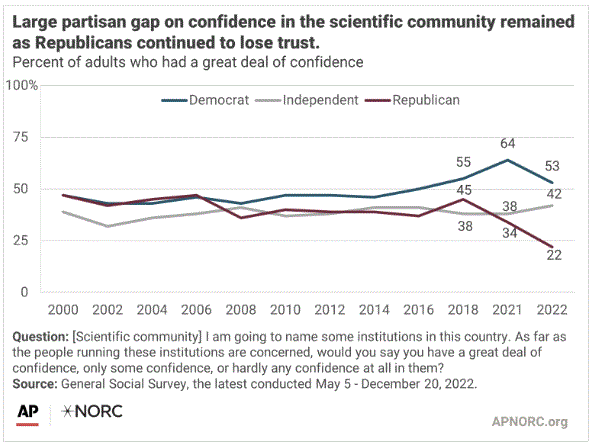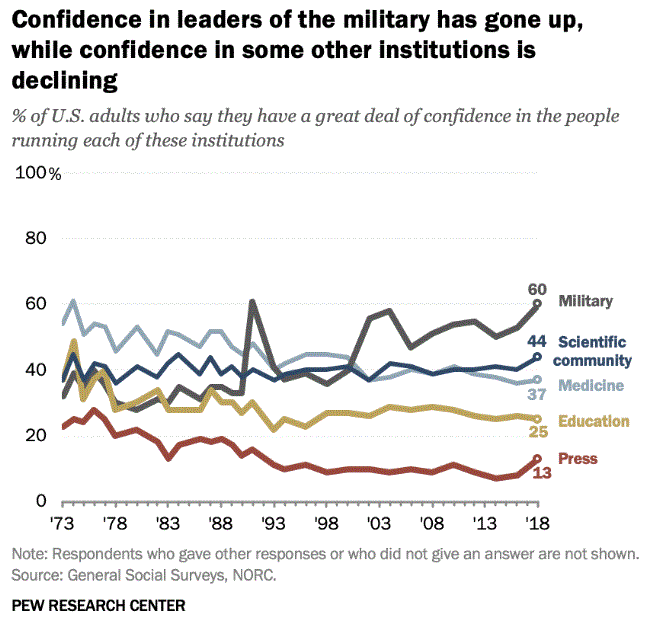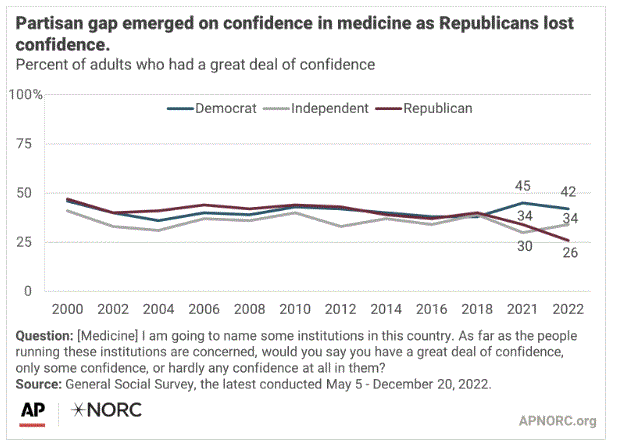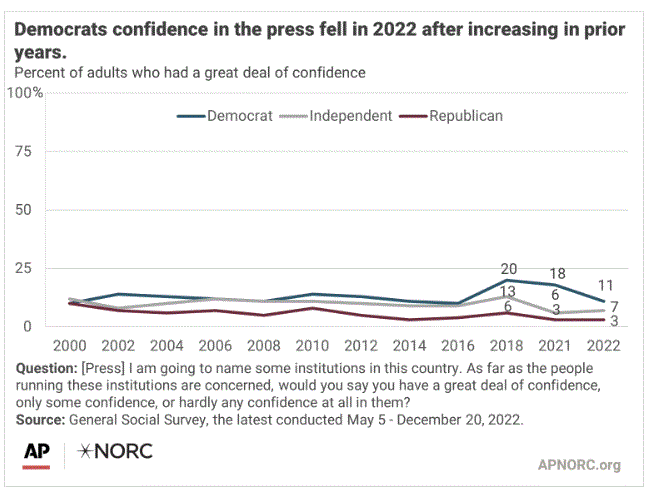By Jo Nova
For most of our lives, scientists have been among the most trusted community leaders. But not any more.
For nearly fifty years, more than four out of ten Americans said they had a “great deal of confidence” in the people running our institutions of science. This was the strongest possible answer people could give. But all that has changed in the last few years with public opinion on science now splitting along political lines. Faith in the institutions of science has collapsed among conservative voters.
The goodwill, the trust and esteem built by things like The Manhattan Project and the Moonshot carried on for decades, but when Covid arrived, and science was the number one public topic of debate, many scientists sat silent on the sidelines. The lab leak theory came and went and then turned out to have been true all along. When ivermectin and hydroxychloroquine could have saved lives, scientists said nothing. When vaccines were sold as “safe and effective”, researchers who knew there were risks, sat on their hands. When borders could have been shut to stop bioweapons, Trump was left on his own. When universities failed the nation, scientists mostly sided with the academics.
The price for spineless silence is that now among Republicans, half the confidence is gone. It was the greatest hour of need, and scientists were missing in action. Wait til the public finds out about climate science…
It’s a remarkable fall among conservative voters in the US: dropping from 45% in 2018 to just 22% in 2022 who still “have a great deal of confidence” in the scientific community.
Major declines in the public’s confidence in science in the wake of the pandemic
June 15, 2023
While Democrats were more likely than Republicans to trust science before the pandemic, what was a 10% point gap in 2018 is now a 31% gap between different groups of voters. During the pandemic Democrat voters briefly became more confident in the scientific community, but that returned to the baseline the following year. The fall in Republican faith shows no sign of leveling off.
It’s hard to believe the effects of this will not translate to other areas like climate change. Once people have admitted scientists can be politicized, bought, blind, or wrong on one topic, it’s hard to see how “Trust the Science” rings true in any other arena.
The General Social Survey was started in 1972, is run by NORC at the University of Chicago every year, and surveyed 3,500 people in 2022.
For fifty years, science was trusted
While faith in medicine, education and “the press” had been eroding over the last fifty years, science had maintained its position. The latest collapse in trust is a marked change from the long term steady trend line.
Faith in medicine also fell, and a partisan gap emerged:
While Democrats confidence in medical institutions did not change, Republicans saying they had a great deal of confidence dropped from 40% to 26%. For most of the years of the survey there was no political divide. This is a new phenomenon.
Confidence in the media, which was almost non-existent, still fell:
It’s been more than 20 years since Republican voters had as much confidence in the media as Democrats.
What happened in 2017? Presumably the bump in democratic faith in the media was due to the election of Donald Trump and partisan attacks on him.
All in all, it’s a sad, sad story when the nations institutions are not worthy of trust, and are so obviously politicized.
Survey details:
The General Social Survey has been conducted since 1972 by NORC at the University of Chicago. Sample sizes for each year’s survey vary from about 1,500 to about 4,000 adults, with margins of error falling between plus or minus 2 percentage points and plus or minus 3.1 percentage points. The most recent survey was conducted May 5 through December 20, 2022, and includes interviews with 3,544 American adults. Results for the full sample have a margin of error of plus or minus 3.0 percentage points. More information about the 2022 GSS is available here: https://gss.norc.org/Get-The-Data



